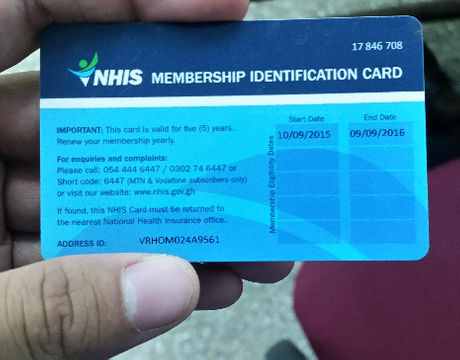The Alliance for Reproductive Health Rights (ARHR), has asked the government to widen the population coverage of the National Health Insurance Scheme (NHIS) by absorbing the cost of registration and renewal for the poor.
This is because most poor people keep falling off the scheme due to extreme poverty, a situation, which will make it impossible for Ghana to attain Universal Health Coverage (UHC).
Policy and Advocacy Coordinator, ARHR, Leonard Shang-Quartey, said on Tuesday that since the UHC roadmap developed by the Ministry of Health (MOH) would rely on the NHIS to make quality healthcare accessible to all, it was prudent for Government to assist people who were unable to enrol on the scheme due to economic reasons.
He was speaking at a news briefing in Accra by the Alliance to commemorate the second anniversary of the “Declaration of Astana to strengthen Primary Health Care” in Accra.
The Astana Declaration was made by world leaders in October 25th and 26th in Astana Kazakhstan.
They committed themselves to make bold political choices to prioritise disease prevention and health promotion to build sustainable Primary Health Care (PHC) systems in their respective countries.
Astana aims at meeting the health needs of all persons through the provision of a comprehensive preventive, curative, rehabilitative services and palliative health care.
Mr Shang-Quartey said healthcare must not only be made available to all but also accessible to all, irrespective of a person’s social class or location.
“We call for a comprehensive and foundational essential health service package to be guaranteed for everyone living in Ghana to ensure that all persons are able to access basic health care at all times,” he said.
Director of Programmes at ARHR, Nii Ankonu Annorbah-Sarpei, said Government must ensure that the Community Based Health Planning and Services (CHPS) system was made effective to serve its purpose of promoting preventive care.
He said making the CHPS functional by encouraging Community Health Nurses to visit schools and homes to educate people on the need to adopt healthy living habits would ease the disease burden on people and reduce the huge funds spent on curative care.
Nii Annorbah-Sarpei said a recent study showed that only 13 per cent of CHPS selected for verification were functional, an indication that there was much to be done in ensuring that quality healthcare services reached everyone in Ghana.
He called for the provision of a national policy on PHC to guide an inter-sectoral collaboration and coordination for the effective implementation of primary healthcare services that focused on both disease prevention and clinical care.
Latest Stories
-
PRINCOF to serve only one daily meal to teacher trainees from June 16 over financial constraints
22 seconds -
CLOGSAG directs staff to strike over alleged misconduct by acting Births and Deaths Registrar
10 minutes -
Moving Health and Trotula Fund equip Tumu midwifery college
16 minutes -
Justice Dzamefe opposes gagging investigative journalism in defence of judiciary
30 minutes -
Ofosu Kwakye appeals for tax exemptions to sustain struggling state media
37 minutes -
Report facts, not perceptions – Justice Dzamefe tells journalists
43 minutes -
Judgements are based on evidence not on friendships – Justice Dzamefe
53 minutes -
Judiciary is not financially independent – Justice Dzamefe
56 minutes -
‘Forget women, smoking and drinking’ if you want to be World Champion – Bukom Banku
1 hour -
Justice Dzamefe proposes timelines for court cases to enhance justice delivery
1 hour -
Global conference on human resources in Africa slated in August
1 hour -
Frederick Asare calls Kotoko’s FA Cup triumph a ‘special day’
1 hour -
We’ll cooperate with the majority in vetting of Supreme Court nominees – Minority
1 hour -
I am ready to defend myself in court for things I said about Zoomlion contract – Manasseh Azure
2 hours -
Livestream: Vetting of seven nominees to Supreme Court begins
2 hours

